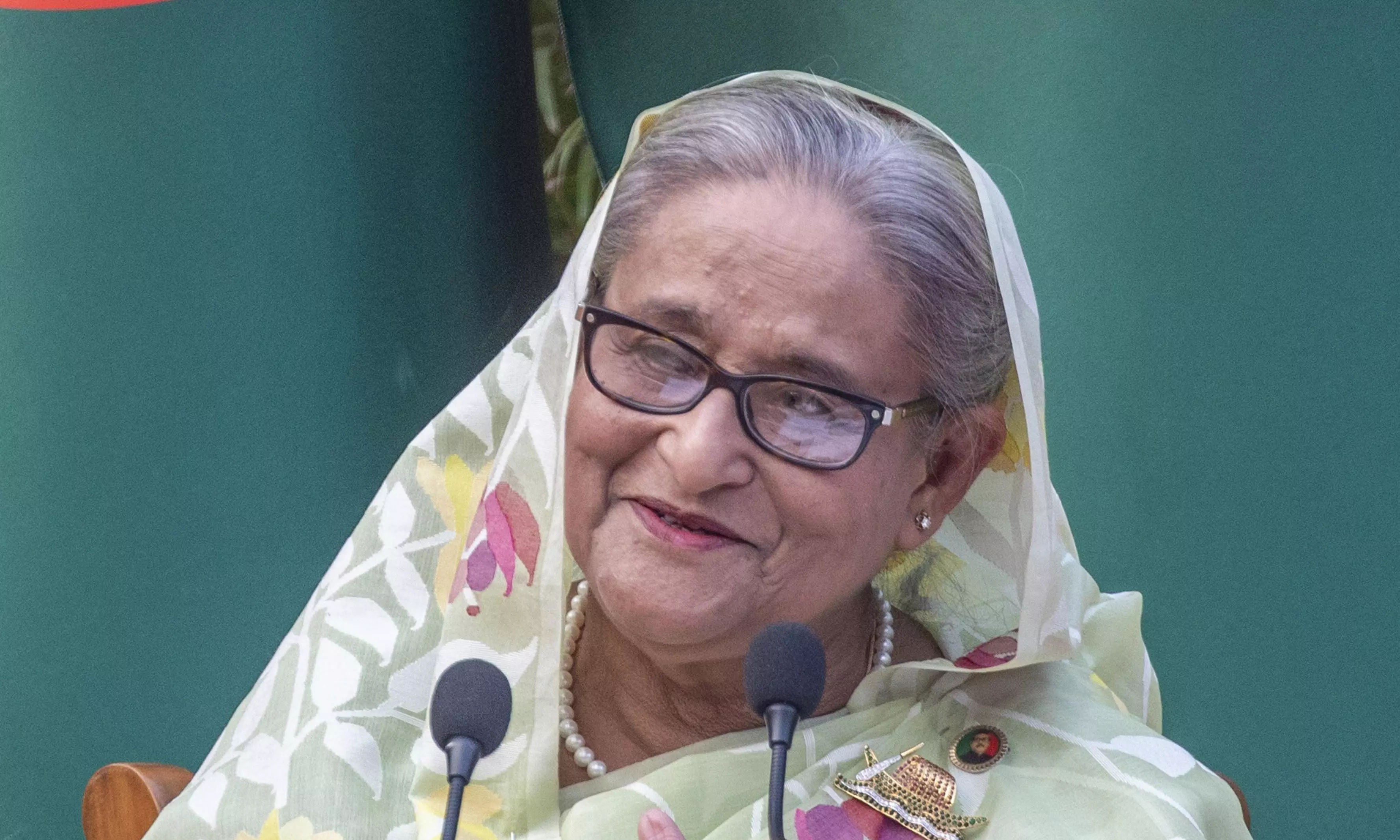
- Home
- India
- World
- Premium
- THE FEDERAL SPECIAL
- Analysis
- States
- Perspective
- Videos
- Sports
- Education
- Entertainment
- Elections
- Features
- Health
- Business
- Series
- In memoriam: Sheikh Mujibur Rahman
- Bishnoi's Men
- NEET TANGLE
- Economy Series
- Earth Day
- Kashmir’s Frozen Turbulence
- India@75
- The legend of Ramjanmabhoomi
- Liberalisation@30
- How to tame a dragon
- Celebrating biodiversity
- Farm Matters
- 50 days of solitude
- Bringing Migrants Home
- Budget 2020
- Jharkhand Votes
- The Federal Investigates
- The Federal Impact
- Vanishing Sand
- Gandhi @ 150
- Andhra Today
- Field report
- Operation Gulmarg
- Pandemic @1 Mn in India
- The Federal Year-End
- The Zero Year
- Science
- Brand studio
- Newsletter
- Elections 2024
- Events
- Home
- IndiaIndia
- World
- Analysis
- StatesStates
- PerspectivePerspective
- VideosVideos
- Sports
- Education
- Entertainment
- ElectionsElections
- Features
- Health
- BusinessBusiness
- Premium
- Loading...
Premium - Events

Despite the ban, the Awami League has continued to stage protest marches against the interim government, signalling that it is down but certainly not out
With elections in Bangladesh expected to take place by April next year, sections of the Bangladeshi mainstream media are already abuzz with speculation about the political future of former Prime Minister Sheikh Hasina. Questions are being actively debated: Can she regain lost ground and make a comeback? Does the Awami League have a viable future in an increasingly assertive Islamic Bangladesh?
Also read | Why Bangladesh will be on a knife-edge till 2026 elections
As expected, most articles underscore the significant challenges currently facing the banned Awami League. The unspoken but unmistakable implication is that the upcoming elections are shaping up to be a contest for power between the newly formed National Citizens Party (NCP) and the Bangladesh Nationalist Party (BNP).
Advantage BNP
Given the current political climate, such coverage in the tightly controlled Dhaka-based mainstream media comes as no surprise. However, it's worth noting that this kind of publicity may not necessarily benefit Team Yunus (Bangladesh Chief Adviser Muhammad Yunus and his aides) or its primary backer, the NCP. In contrast, the BNP appears to hold a clear advantage over other parties heading into the 2026 general elections, both in terms of public image and short-term prospects. Its record of corruption seems to have been largely overlooked or forgiven by its traditional voter base.
As the country's current supreme leader, Yunus should be more focused on understanding why such reports are surfacing in the local press barely 10 months after the so-called “second liberation” on August 5, 2024, the day the Awami League was ousted from power.
It’s not that the interim government has failed on all fronts. Team Yunus deserves credit for securing some breathing space for Bangladesh, notably by maintaining a healthy foreign exchange reserve of over $20 billion. Yunus’s international reputation as a respected economist has played a role in this achievement. Additionally, the steady inflow of remittances has been sustained, which is no mean feat.
As a populist move, the interim government ordered the swift release of convicted prisoners from Bangladeshi jails. Despite initial setbacks marked by political unrest and violence, industrialists have gradually managed to reopen shuttered units in the garments and other key sectors. Meanwhile, the law and order situation has shown signs of improvement, particularly as the government initiated dialogue with political leaders regarding the upcoming elections.
All eyes on Yunus
The interim government's tentative plan to hold elections in either February or April 2026 has offered some relief, not just to the BNP, but to other political parties as well. For many within the BNP, it serves as a reassuring sign that Yunus, despite perceptions of being power-hungry, may have ultimately chosen not to position himself as a leading political contender.
However, some of Yunus’s critics remain unconvinced and have urged caution. They point out that, as chief adviser, he still holds the authority to postpone elections in the event of a national emergency. Moreover, they haven’t forgotten how he evaded questions on the issue of election timing. Earlier, Yunus had suggested it could take more than two years to create a conducive atmosphere for free and fair elections in Bangladesh. Throughout that period, he consistently sidestepped questions about both the arrangements and the proposed timeline for the polls.
As some politicians point out, there is no stopping Yunus from setting his sights on the prestigious post of President of Bangladesh. These recent developments certainly augur well for Team Yunus and the political parties, particularly the BNP. However, the lingering threat of an Awami League resurgence continues to cast a shadow, not only over Yunus and the untested NCP, but to a lesser extent, even over the BNP.
Awami League in a mess
At the moment, the Awami League appears to be in dire straits. Its most prominent leader, Sheikh Hasina, remains in exile, while scores of the party’s second and third-rung leaders and activists have been imprisoned by the administration, many facing serious charges that make their release unlikely in the near future. Given this situation, the political advantage, for now, clearly lies with the BNP.
Also read | Mob vandalises Rabindranath Tagore's ancestral home in Bangladesh; video goes viral
Moreover, by remaining out of power for extended periods in protest against what it called “rigged elections” conducted by the Awami League, the BNP demonstrated an unusual degree of patience and discipline in terms of democratic behaviour. Its leader, Khaleda Zia, despite her ill health, endured prolonged house arrest. Her son, Tareq Rahman, also facing serious corruption charges like his mother, has operated effectively during his long exile in the UK.
Nevertheless, the BNP, now backing the interim government's ban on the Awami League, was initially divided on the issue. Senior leaders such as Mirza Fakhrul Alamgir and Rumin Farhana had openly opposed the ban. Analysts remain unsure of how Team Yunus ultimately convinced the BNP to fall in line and endorse the move against the Awami League.
Remains a potent force
Having said this, there are still compelling reasons why the Awami League cannot be dismissed lightly, even in its banned state. To begin with, the Awami League is the party that the world at large associates with the emergence of Bangladesh. It was the undisputed leader of the country’s long and bloody liberation struggle against Pakistan in 1970–71.
The Awami League is also the only political party in Bangladesh that has consistently enjoyed the trust and respect of major Indian parties, including both the BJP and the Congress. This relationship is particularly significant in the Bangladeshi context, where ties with India’s ruling parties can have substantial political and economic implications. Much of Bangladesh’s economic progress over the past decade can be attributed, in part, to the strong rapport between the Awami League and the BJP. Key initiatives, such as the $1 billion Indian credit line, extensive infrastructure development, reliable support in meeting fuel and energy needs, and India’s efforts to increase imports from Bangladesh to help reduce the trade deficit, have all played a crucial role in the country’s growth.
Dhaka has also ensured that no anti-Indian insurgent or separatist group is given shelter on Bangladeshi soil, a move that has significantly contributed to reducing insurgency in India’s northeast. The key question now is whether the BNP, which in the past supported such groups and deliberately antagonised India, can establish a trustworthy and stable partnership with New Delhi.
This is a question all Bangladeshi political parties must seriously consider if they are genuinely committed to advancing the country’s economic development. At present, any meaningful improvement in relations between the BNP and the BJP could yield long-term benefits for both Bangladesh and India.
Down but not out
Despite the ban, the Awami League has continued to stage protest marches against the interim government, signalling that it is down but certainly not out. Reports in the Bangladeshi media indicate that the party still commands around 40 per cent of the overall vote, which reflects a strong and enduring support base.
It is widely acknowledged in Bangladesh that without Sheikh Mujibur Rahman, Hasina’s late father and the undisputed leader of the Awami League, the country’s independence would not have been possible. The Awami League has consistently worked to strengthen cultural ties with West Bengal. Bengali writers and poets, from Rabindranath Tagore onwards, enjoy immense popularity in Bangladesh. Likewise, artists and musicians from both sides of the border have long shared close and cordial relationships.
Ties with India crucial
It remains to be seen whether the BNP can foster and sustain a positive relationship with India. The growing shift among some sections of Bangladeshi society toward a more aggressive form of Islam, evidenced by rising attacks on Hindus and the desecration or destruction of cultural and religious sites, poses a serious challenge. In such a climate, preserving the previously cordial ties between the two countries may prove increasingly difficult.
Also read | Bangladesh wanted good ties with India, but 'something always went wrong': Yunus
This is why, regardless of who wins the 2026 elections, strong bilateral relations between India and Bangladesh are crucial for both nations. Unfortunately, Yunus has repeatedly antagonised current Indian leaders, while several NCP youth leaders have openly expressed a preference for closer ties with Pakistan, even the Taliban, by their own admission.
However, the secular and liberal forces in Bangladesh, still influential in terms of cultural impact, remain firmly aligned with the Awami League. This enduring support is a key source of concern for Team Yunus and the NCP, and to a lesser extent the BNP, as they gear up for the 2026 elections.
(The Federal seeks to present views and opinions from all sides of the spectrum. The information, ideas or opinions in the articles are of the author and do not necessarily reflect the views of The Federal)


